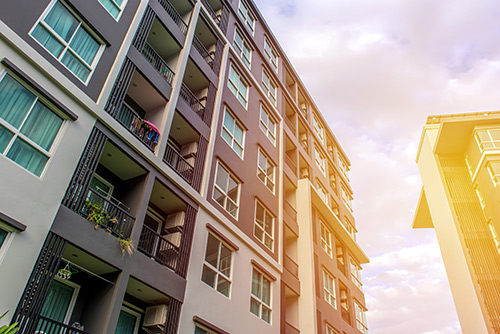
Owners of countless residential buildings in even unaffected areas are rethinking their game plans when it comes to installing backup generators and relocating existing mechanical equipment.
Taking on such a project is no easy task. Here is some insight and advice on how to make the process less daunting.
Q. What types of buildings benefit most from having a backup generator?
A. All buildings can benefit in the sense of having uninterrupted power during a storm or a natural disaster, particularly the ones in flood or outage prone areas.
However, regardless of the building’s location, the overriding concern is always completing the installation while minimizing capital outlay.
Q. Is this easier to achieve in some buildings than others?
A. Yes, especially in newer buildings where more often than not only minor infrastructure changes are required for installation.
Under the most ideal scenarios, this includes instances where there is already a rooftop or lined chimney present, where the electrical for the common areas is isolated from the remainder of the building (e.g. circuits for the critical systems such as emergency lighting and fire protection are not also wired to non-critical systems such as common outlets and general lighting, and where apartments and common areas are not served by the same electrical feeders), and where a gas supply is also readily available because it serves other large equipment in the area that the generator will be installed or there is sufficient room for a diesel tank.
Q. Are pre-war buildings versus newer developments more likely to withstand damage during a natural disaster?
A. Not necessarily. Although pre-wars may be more resilient due to their masonry solid wall construction, the degree to which the mechanical systems in pre-wars may be exposed to flooding due to locations within the basement may make them less likely to be habitable during a flooding event.
New developments would generally have to be built to more stringent codes and standards with respect to the need for emergency generation and the ability to withstand some degree of trauma caused by natural disasters.
By the same token, however, you may see more mold growth in new buildings due to the presence of certain building materials, but that isn’t to say it isn’t found in pre-wars also.
Q. How much does location factor into choosing the best type of protection?
A. In the areas prone to flooding, an owner may elect to install units that are easily installed on top of the roof or in a mechanical room above the ground floor.
Q. How do I know what size or type of generator is best for my building?
A. It all depends on the equipment that will need to be connected to an emergency system. At minimum, you may need a 100 kilowatt generator to cover an elevator, emergency lighting, fire safety systems, critical sump pumps and minor miscellaneous loads.
The needs for commercial buildings may vary widely; while a 100 kW generator may be needed for residential property, a 150 kW unit will be required to power three commercial floors.
Q. So does a generator only power the building common areas versus the electricity inside individual apartments?
A. It can power both, but a typical application focuses on the common area of the buildings and not electricity to all units. To power both, we have to increase the size of the generator so that apartment power requirements don’t overload it.
Q. What are the costs and logistics of installation?
A. Cost will vary depending on the building infrastructure and generator technology, but a ballpark figure for the installation of a 100 kilowatt reciprocating engine with minor electrical work and without the need for a chimney liner runs something in the neighborhood $250,000, which also includes engineering costs and permit fees.
This will provide the power required to run the common area lighting, one elevator, a fire alarm panel (if present), a few critical pumps and dedicated outlets at the ground floor. It will not be enough to allow residents full use of the electricity within the respective apartments when considering a six-story 50-unit building.
It’s difficult to provide average spend per building since providing the minimum installation will generally costs the same across the various sizes outside of additional wiring that may be needed.
Q. What are some other things to consider?
A. Again, there are no hard and fast rules and no two buildings are alike, but it all basically comes down to location in terms of where the generator will be housed and the type of fuel it uses, as well as any rewiring, ventilation, or structural reinforcement requirements.
Q. How much fuel should a building have on hand--for example, to get through another Sandy situation, where some buildings lost power for a week?
A. If the generator is operating on gas then there is no concern about local fuel storage as it will be supplied by the utility. If operating on diesel fuel, then storage will be dictated by available space and runtime. You may need on the order of 1,500 gallons of fuel to run a 100kW generator for a week.
Contact South Shore Generator Sales & Service for more information on generators for apartment buildings.
Source: brickunderground.com
Whether your need is to power your business to keep on your production schedule or your home to keep your family safe and sound, South Shore Generator has the product diversity to meet all of your generator requirements. We are proud to sell and service generators from 2kW to 2000kW single set units and up to as large as 100MW utilizing Generac's innovative Modular Power Systems (MPS).